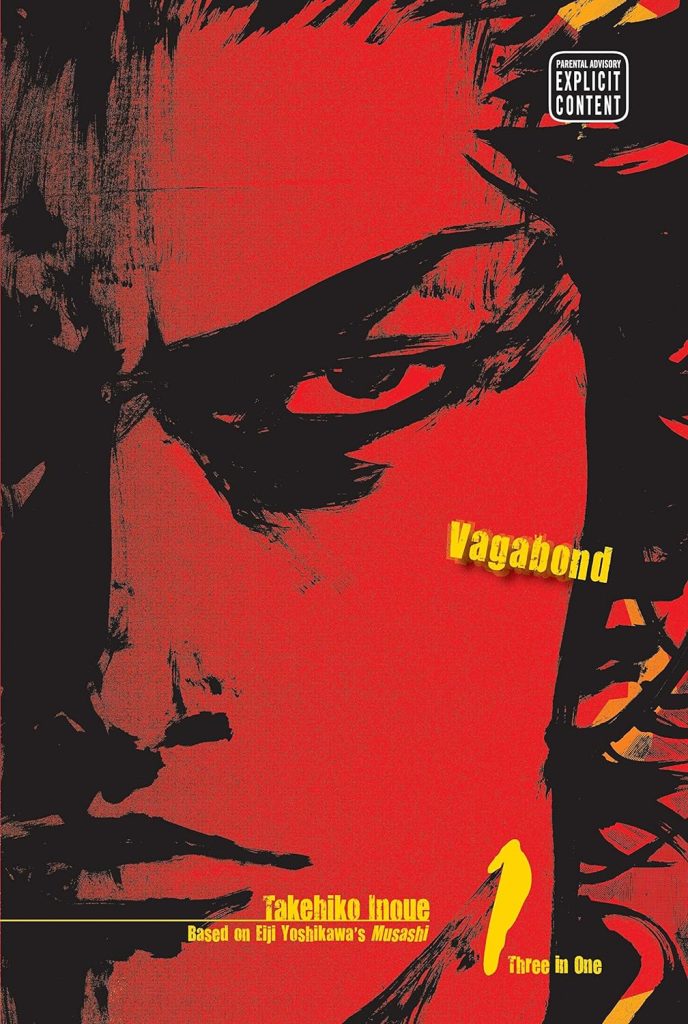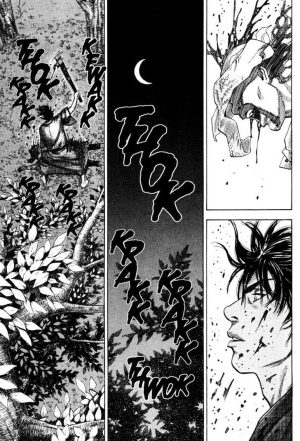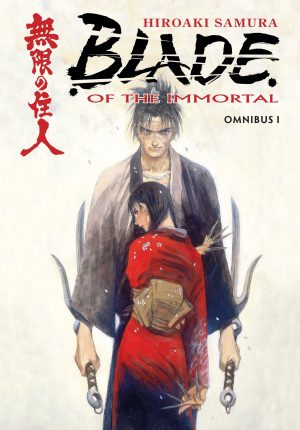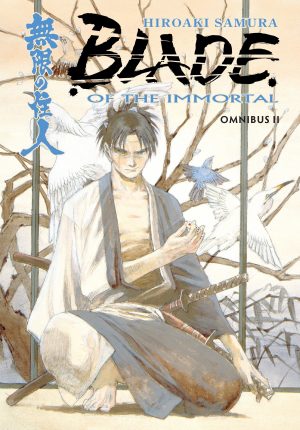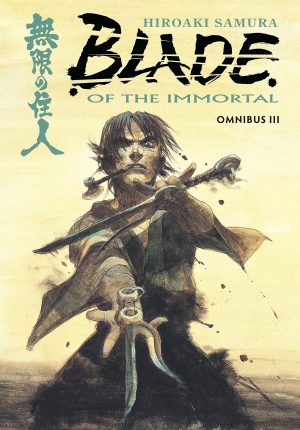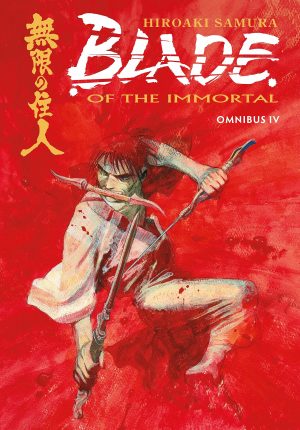Review by Karl Verhoven
Japanese comics are hardly short of samurai epics, and some of these feudal era stories are among the best manga has to offer, so is Takehiko Inoue brave or foolhardy in initiating another? What he has going for him is offering a protagonist already known as a legend. 17th century samurai Miyamoto Musashi left an autobiographical account of his life, and numerous others have adapted and expanded it. Inoue’s Vagabond isn’t entirely an adaptation of Eiji Yoshikawa’s 1930s Mushasi, but close enough that a cover credit notes it’s based on that work, and the briefest of reviews would be that Vagabond becomes a compulsive and unpredictable saga.
At the start Musashi is known as Shinmen Takezō, first seen as a survivor on the losing side of a battle, and bit of a tearaway at seventeen, yet already fearsomely talented with a sword. He may proudly proclaim to be a vagabond, but the truth is of the lifestyle imposed via a desire to avoid troops hunting for him. This combines what was originally released as Vagabond Vols 1, 2, and 3, and running 31 chapters together blurs the distinction of Inoue deliberately presenting a growing personality and very different leading man in each of the three individual volumes. The key sequence is the middle portion in which Takezō’s potential is acknowledged by someone forcing him to confront his shortcomings and who eventually provides the Musashi name.
If Musashi’s progress is gradual, it takes no time at all for Inoue’s art to captivate. There’s no real weakness. His characters resonate, his pacing is immaculate, and his action scenes are well thought through and choreographed, which shouldn’t be a surprise considering his first success was a basketball series. Most impressive of all is his work rate in search of a pleasing page, or even panel. Decorative detail is included at almost every opportunity, and perhaps in reaction to so much work on a basketball series of necessity largely set in urban environments, he relishes the surroundings of nature. The importance of nature is underlined when Mushashi acknowledges the skill of his undesirable father before proclaiming “the mountains and everything in them have been my only other teachers”.
By what was originally presented as Vagabond Vol. 3, Inoue has jumped Musashi forward four years to arrive in Kyoto, confident in his own ability and wanting to improve by challenging the local sword school. It’s a prolonged exercise in tension, with small pauses between, and as such differs from the remainder and indicates a willingness on Inoue’s part to push the boundaries.
So far very enjoyable, but the potential is there for something magnificent.
